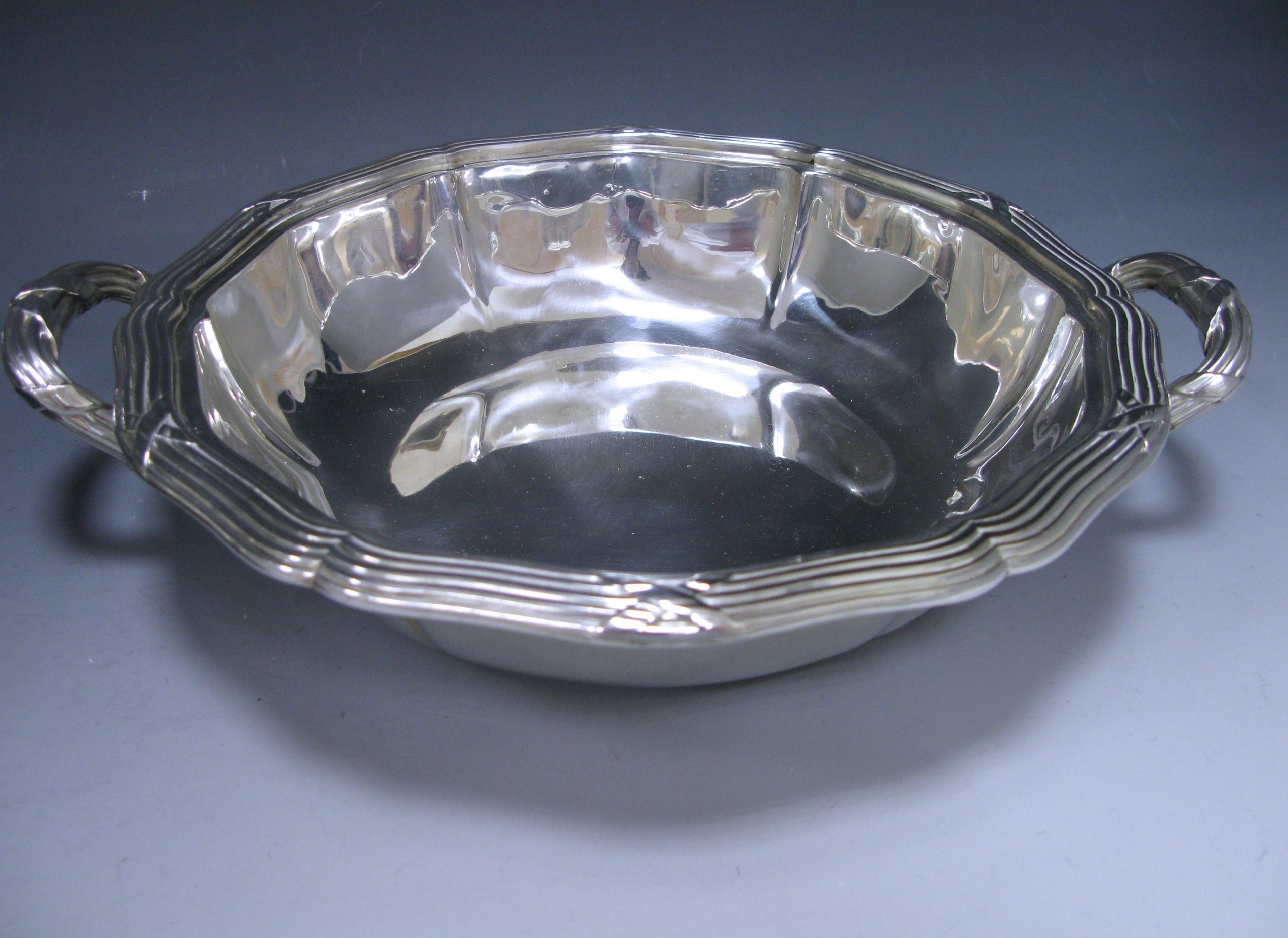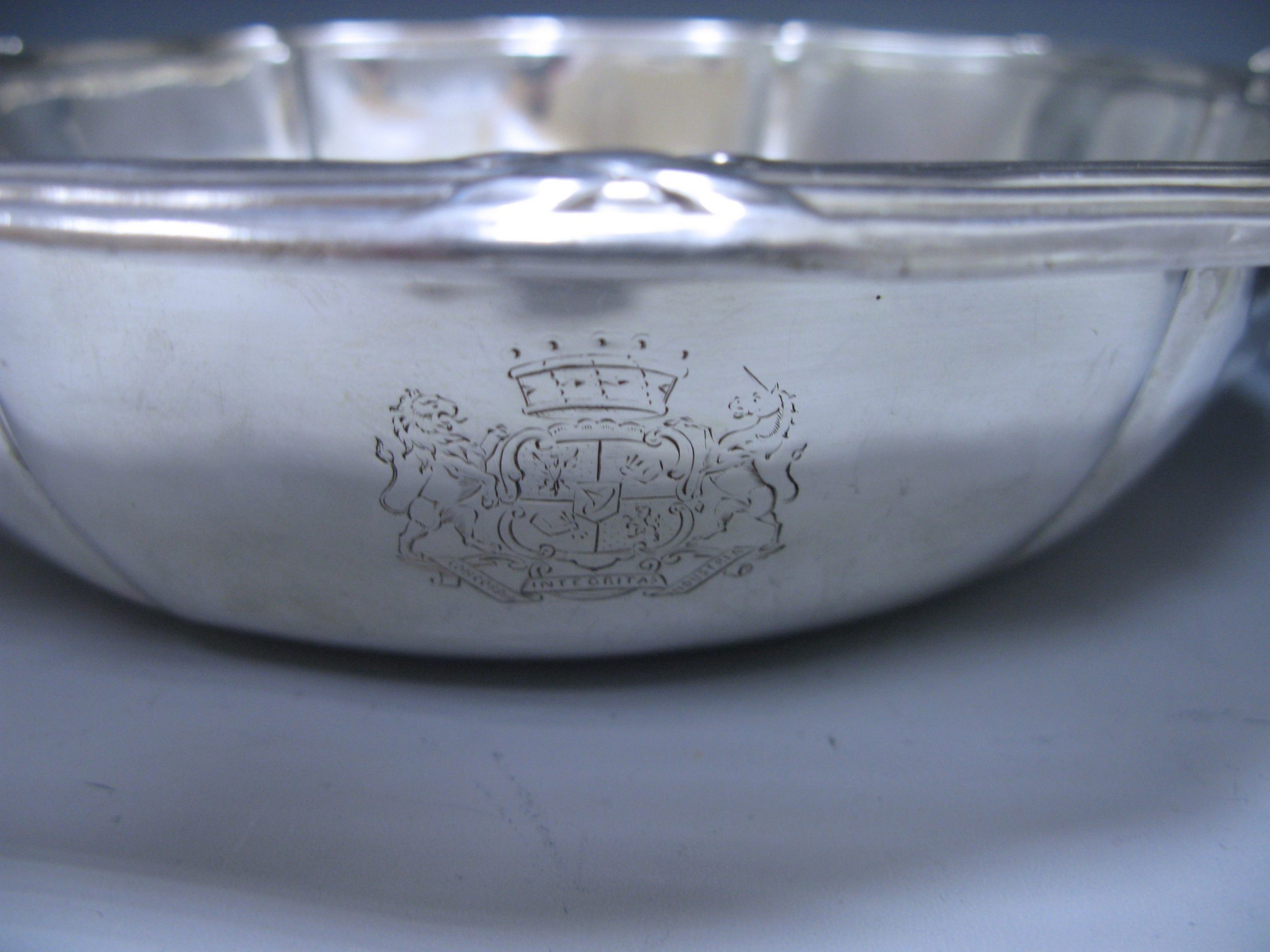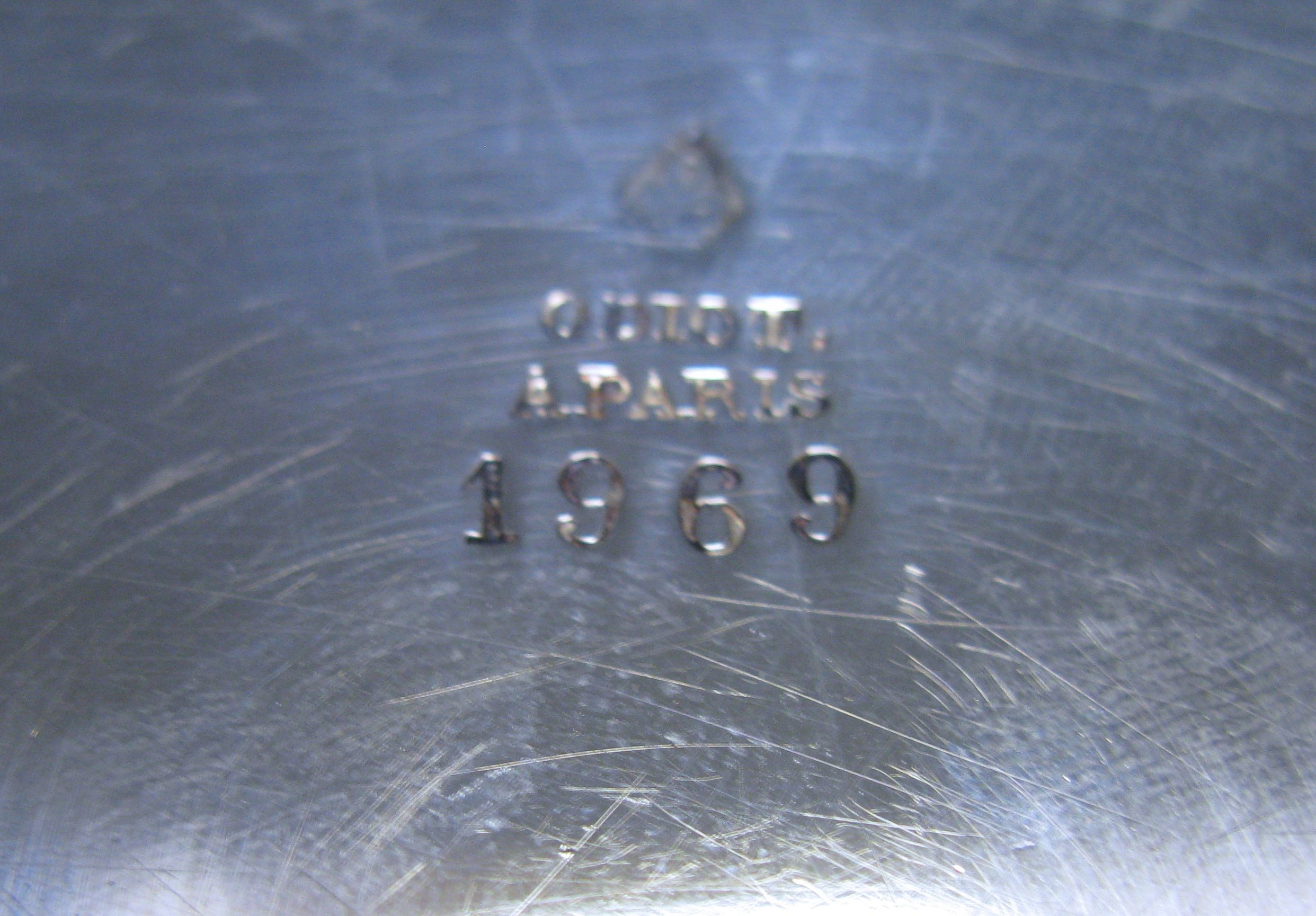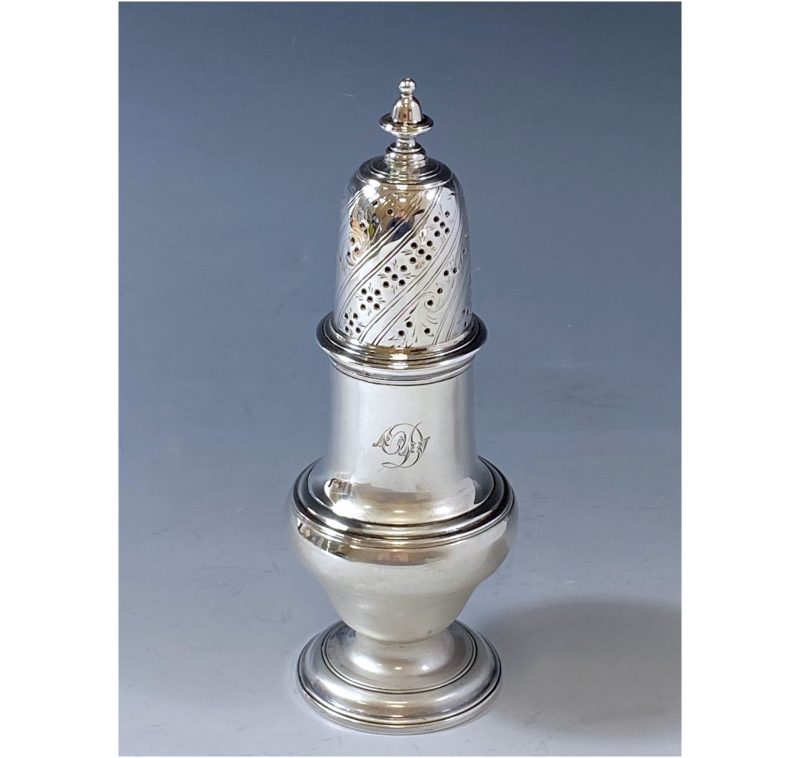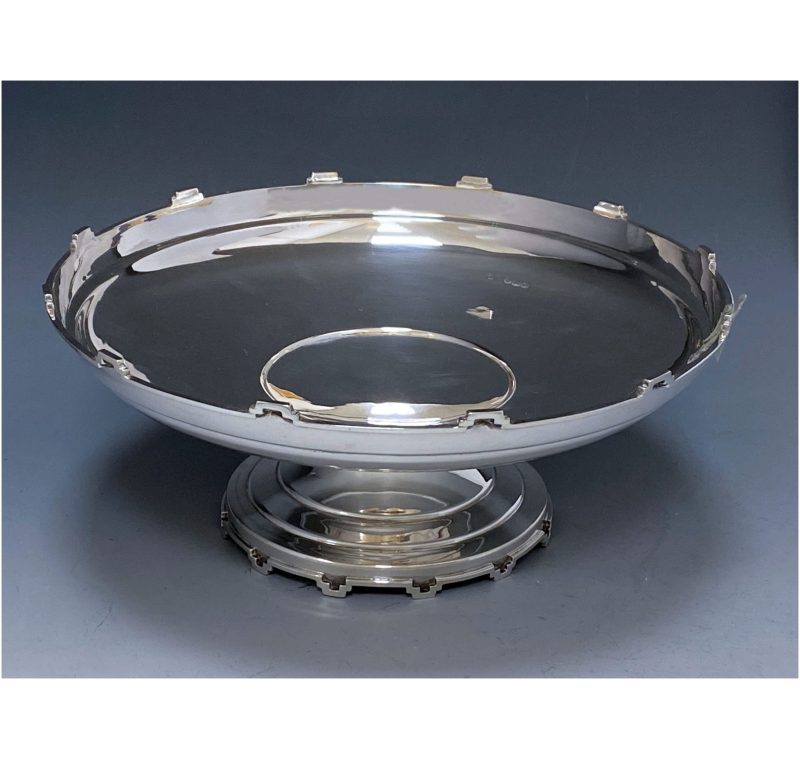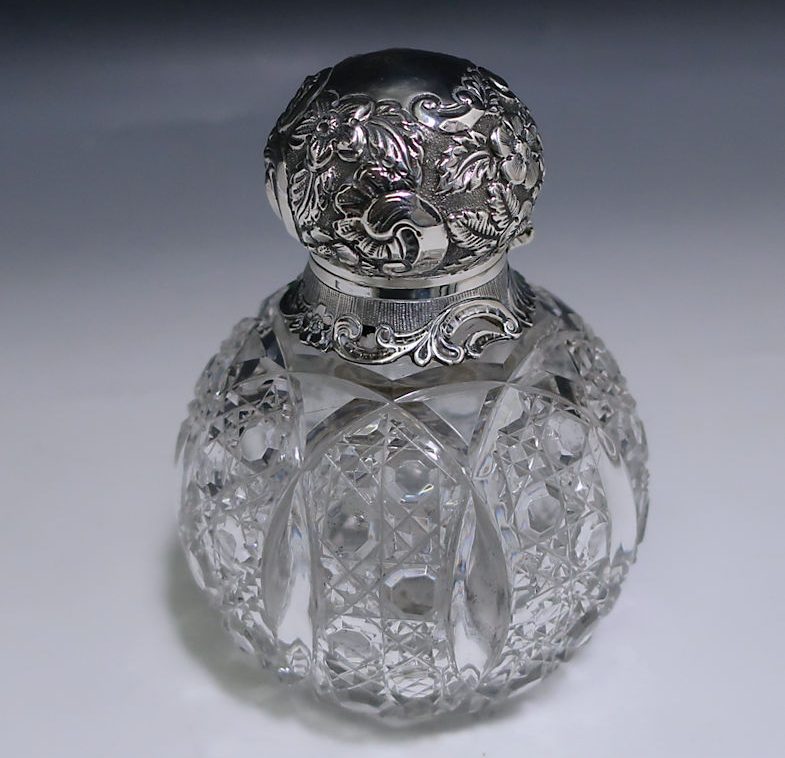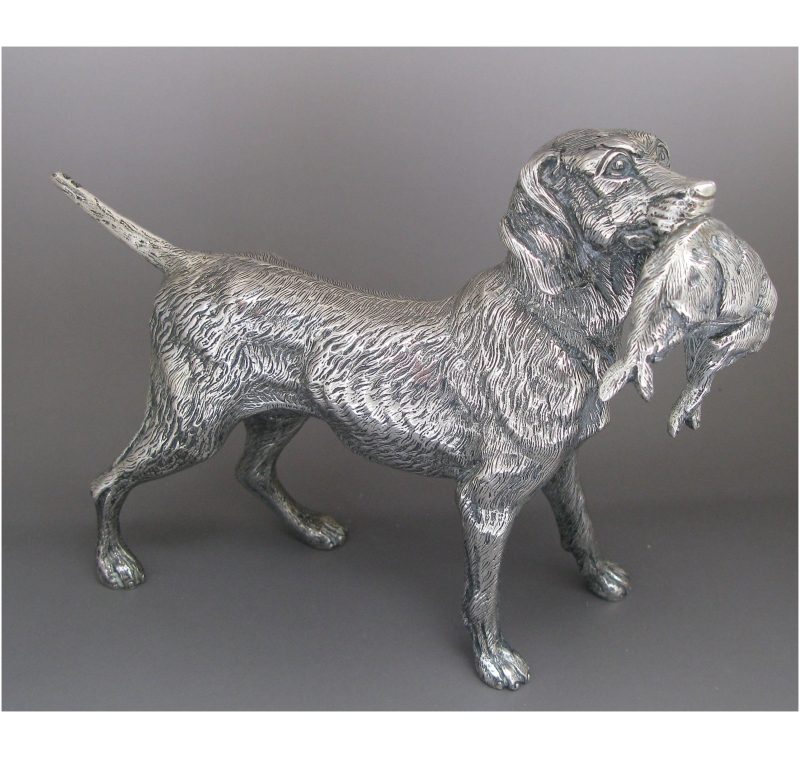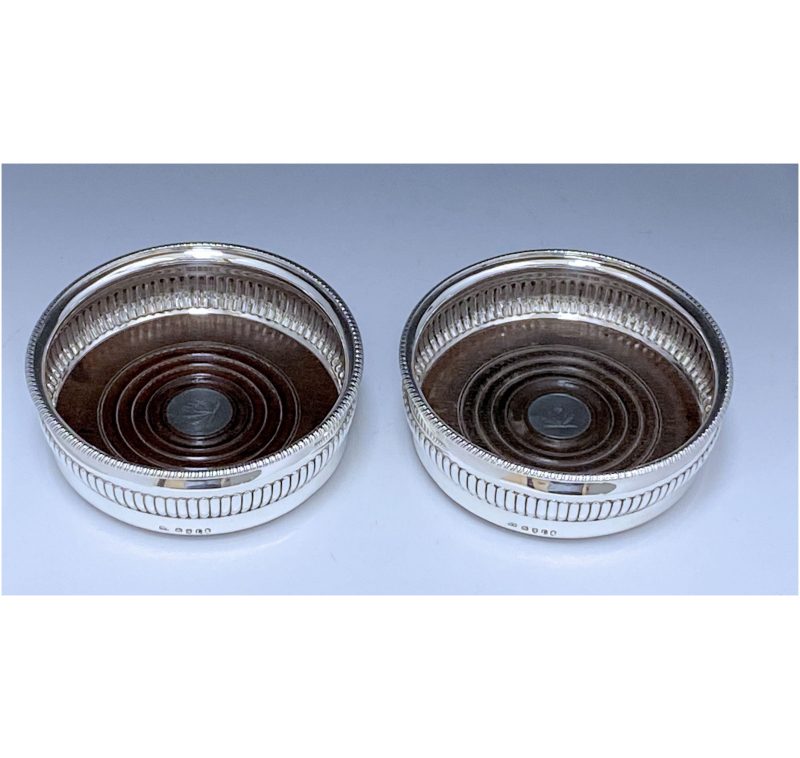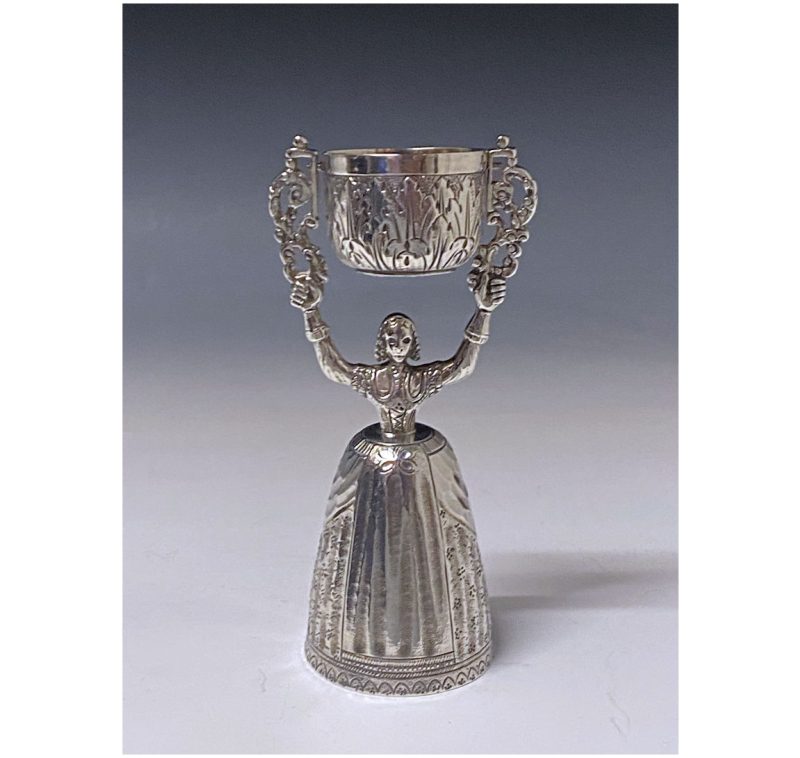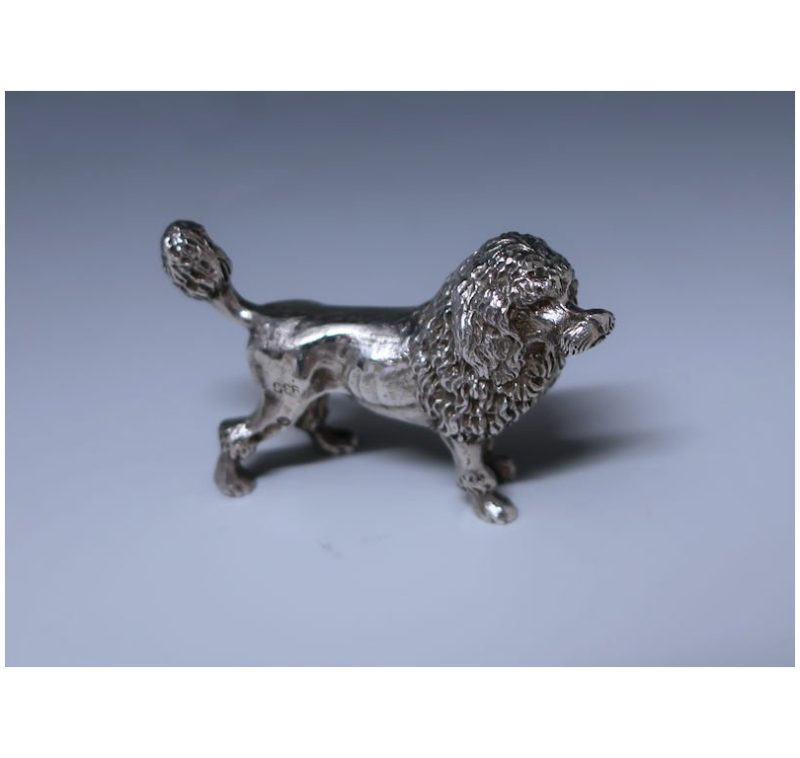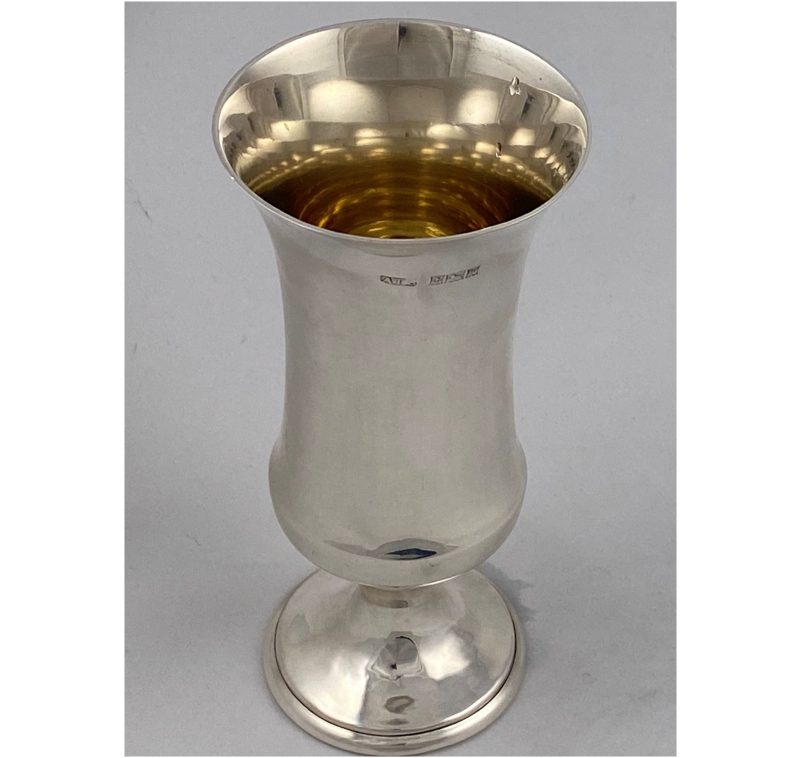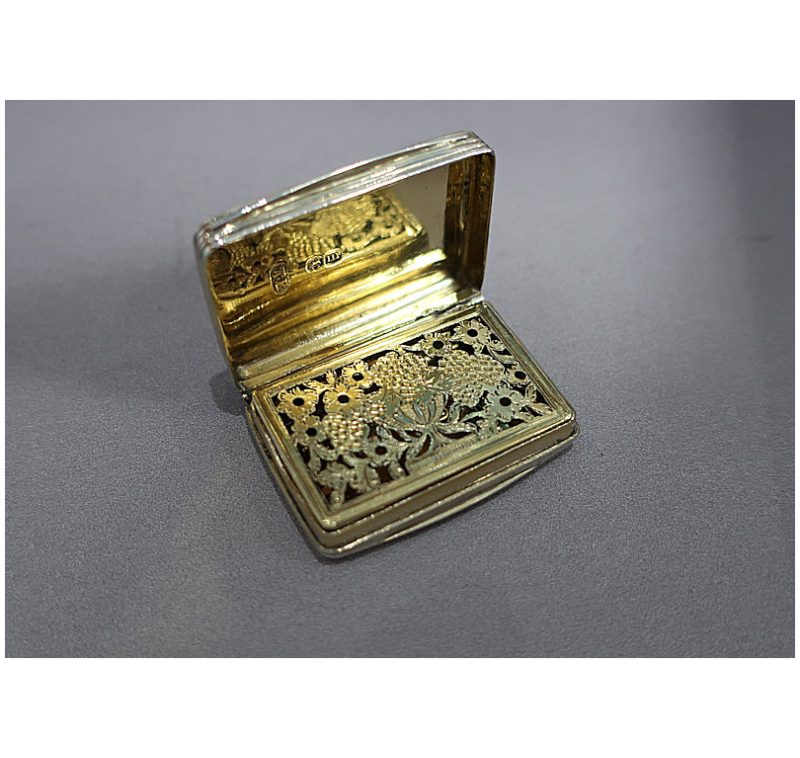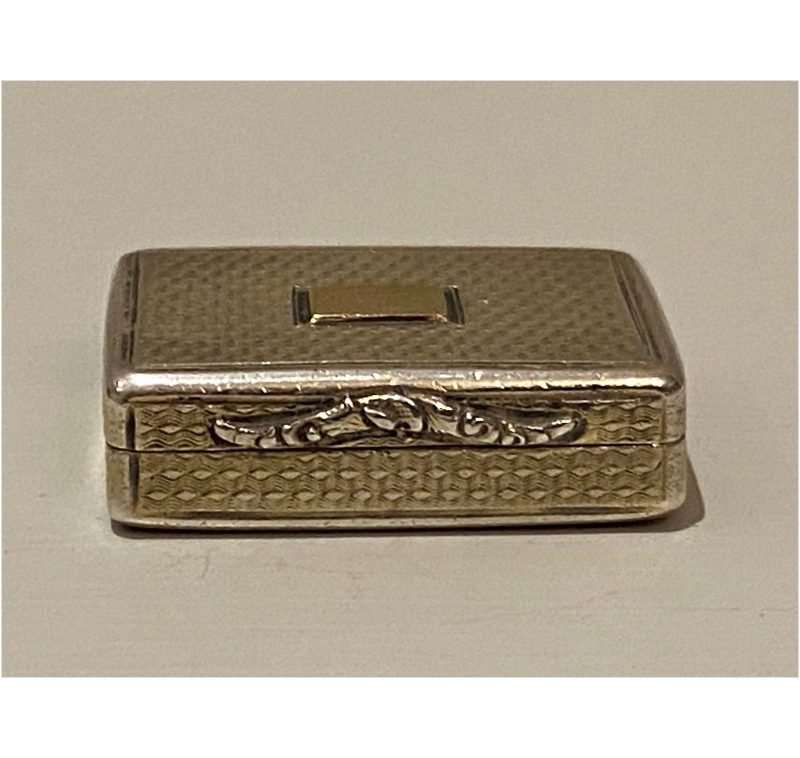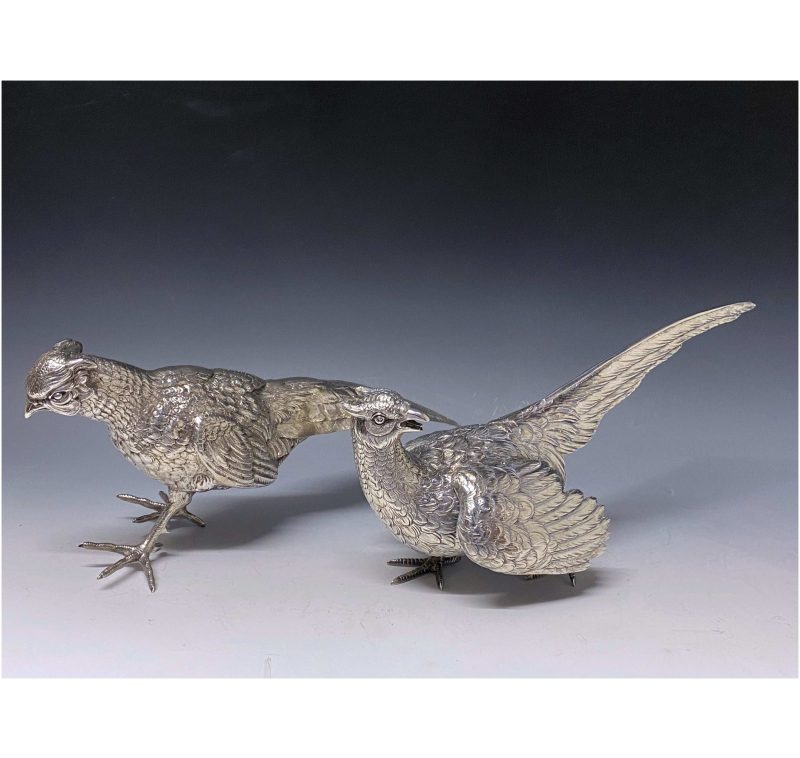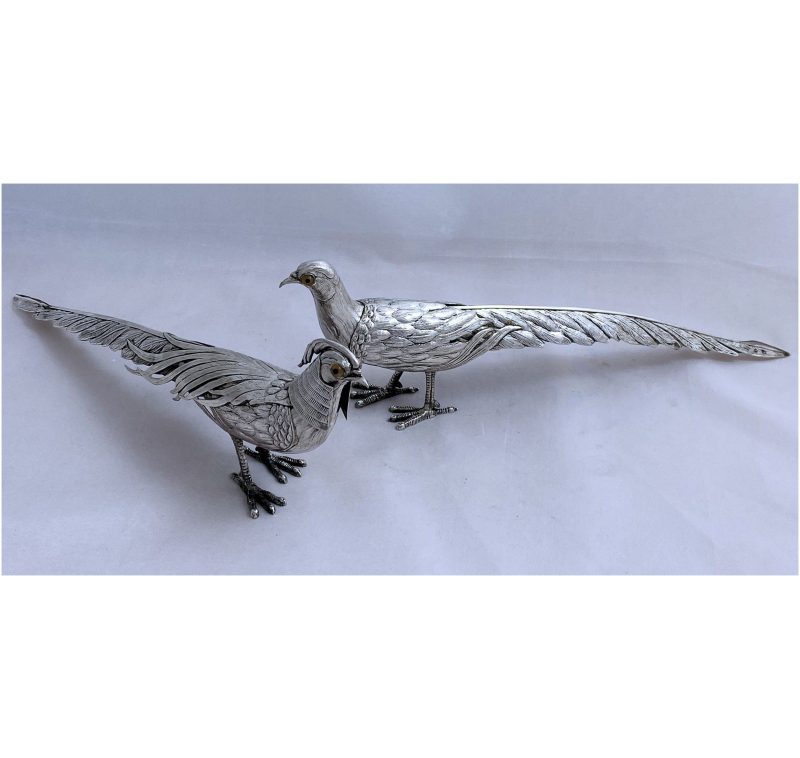Item Sold
French Silver Vegetable Dishes made in c.1860
Sold
A pair of 1st standard French silver (950 pure) vegetable dishes with ribbon-tied reeded borders. They are engraved with the coat of arms of Baron Rothschild.
| Date | 1860 |
| Made By | Maison Odiot |
| Location | Paris |

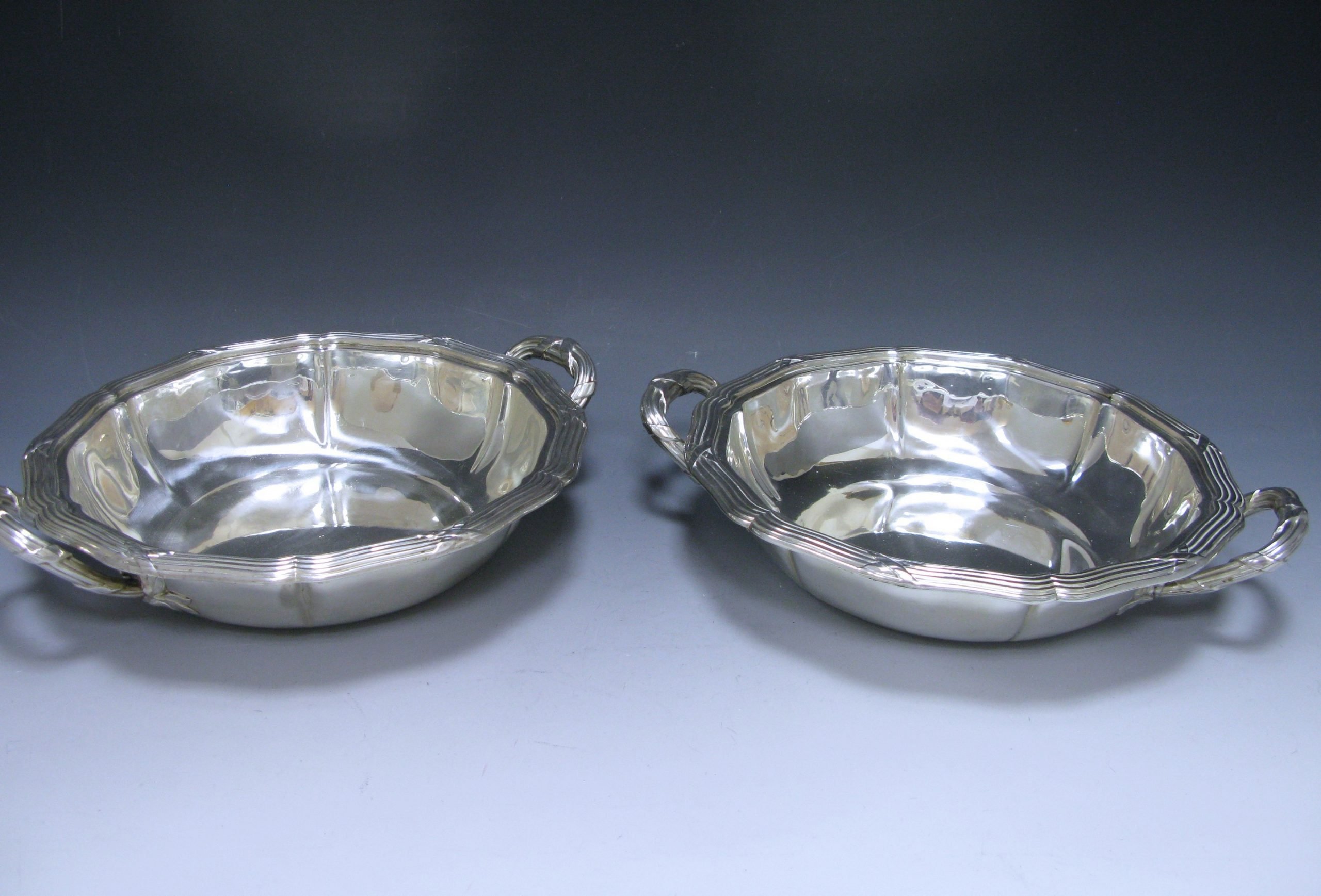
Out of stock
A pair of 1st standard French silver (950 pure) vegetable dishes with ribbon-tied reeded borders. They are engraved with the coat of arms of Baron Rothschild.
Made by Odiot of Paris c. 1860.
Dimensions: 31.4 cm width over handles; weight (approximately for the pair) 40 troy oz.
Provenance: Rothschild
The House of Odiot was founded in 1690 by Jean-Baptiste Gaspard Odiot. The House rose to prominence under the extremely talented Jean-Baptiste Claude, Jean Baptiste Gaspard’s grandson. He received many prestigious orders from the Emperor, including Napoleon’s coronation sword and scepter and the Emperor’s campaign dinner service.
Odiot was particularly influenced by the antique style and created lavish displays in silver-gilt. Odiot’s reputation spread beyond the Empire to all the courts of Europe.
Charles Nicolas Odiot experimented with electroplating, a new technique he brought back from England in 1824. He worked in the revived rocaille style, and by 1825, he was purveyor of silverware by appointment to His Majesty the King Louis-Philippe and to the Royal Family of Orleans.
Charles Nicolas was succeeded by his son, Gustave, who revived the largest order placed with the House of Odiot, 3,000 pieces of solid gold flatware from Saïd Pacha, the Viceroy of Egypt. Gustave went on to become the purveyor by appointment to the court of His Majesty the Tsar.
The House of Odiot still functions today. Their exceptionally rich heritage has enabled the House to continue to produce the highest quality of objects. The preservation of knowledge through the ages and their extensive archives make them unique in their production. An unparalleled collection of patterns, moulds and drawings has enabled the House to produce modern day silverware from the original historic moulds and also develop new designs drawing inspiration from the archives.
Jean Baptiste Claude Odiot was born in 1763 and becoming a master in 1785, Odiot succeeded his father in the business, steadily building the firm’s reputation, coming to a particular notice following the Exposition de l’industrie held in Paris in 1802.
Following the bankruptcy, in 1809, of the celebrated neoclassical silversmith Henry Auguste, who at the time was the silversmith to Emperor Napoleon, Odiot was able to purcahse many of his models and designs. Odiot, along with Martin-Guillaume Biennais, soon replaced Auguste as the Napoleon’s silversmiths ensuring the success of both firms. Soon Odiot was receiving orders from the French court, including a service made for Napoleon’s mother, styled ‘Madame Mere’. and as well as from all over Europe and beyond. The Russian’s Imperial court’s love affair with french silver, most famously realised in the service made for Catherine the great from the Parisian silversmith Jacques Roettiers and his son Jacques-Nicolas Roettiers in 1770 and subsequently presented to her lover Count gregory Orloff continued with commissions from the Russian court to Odiot. Among these important commissions were a massive service for Countess Branicki and Count nikolai Demidoff.
Odiot’s work during this period is characterised by strong neoclassical forms, ornamented with cast figural elements, attached not by the traditional soldering but with the use of bolts and rivets, a method he inherited from his collaboration with the bronzier Pierre-Philippe Thomire (1751 – 1843).
Having survived the French Empire as well as the Bourbon monarchy, Jean-Baptiste-Claude Odiot retired in 1823 passing the business to his son Charles-Nicolas.
We provide worldwide postage/shipping and everything is fully tracked and insured. Purchases will be sent via Royal Mail Special Delivery, FedEx, Parcel Force, A-Z couriers; other delivery providers may be used in extenuating circumstances. We deliver to the address provided at the time of purchase but not to PO addresses, as a signature is required upon delivery.
Some countries levy import duties and local taxes. Payment of these is the purchaser’s responsibility and beyond the control of William Walter Antiques Ltd. When the container has reached the destination country, a customs representative will contact you for payment prior to delivery.
Import restrictions are applicable to some destinations, especially the import of products containing materials such as ivory and tortoiseshell. We cannot accept orders requiring shipment to any countries which implement such controls.
All items are checked and photographed prior to packaging, and we aim to dispatch 1-3 days after receiving cleared payment.
Delivery Charges:
For the UK £15.00
For Europe £30.00
For the rest of World £50.00
The charges are subject to change
At the heart of William Walter Antiques is our dedication to providing our customers with beautiful silver of supreme quality, which celebrates all that is precious about sterling silver. Customer service also being paramount, our long-standing, devoted staff team go above and beyond the call of duty for all our clients. We believe it is this combination of passion and commitment that has kept our customers with us for many years.
We accept credit/debit cards or bank transfer. Please submit an enquiry below or contact us on:
Phone Number
+44 (0) 207 242 3248
Email
info@williamwalter.co.uk
Visit us at the London Silver Vaults
William Walter Antiques,
London Silver Vaults,
53-64 Chancery Lane,
London, WC2A 1QS
Opening Hours
Mon – Fri: 10:00 – 17:00
Sat: 09:00 – 12.30




